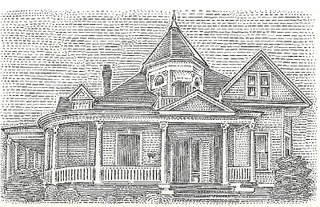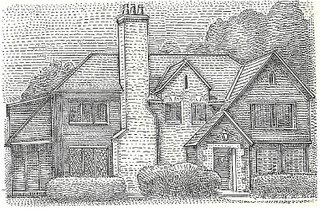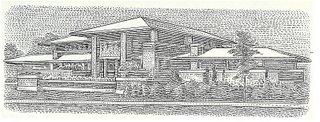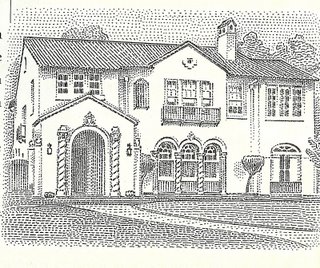Eliminate the monthly mountain of paperwork by keeping only what you need.
You probably have dozens of documents you know you should hold on to, whether they're in clearly labeled, well-organized files or scattered around your house or office. Trouble is, when you finally get a chance to sort through them and weed out the ones you don't need anymore, it's not always easy to know what's essential and what isn't.
That's why I created the charts on the following pages. Keep in mind that what often separates the papers you need -- and how long you keep them -- is whether they're related to anything you deducted when you filed a tax return.
Save every tax-related document for at least three years after you file the return, which is the length of time that the IRS has to determine that you owe additional taxes -- that is, if you reported all of your income. If you didn't, and the amount that you didn't report is more than 25% of the gross income on your tax return, the IRS has six years to assess additional tax. And if you didn't file a return or filed a fraudulent one, the IRS can knock on your door anytime.
However, you might want to save most tax-related documents for seven years or more -- even though that's longer than the IRS and some accountants recommend. (We'd rather be pack rats than show up empty-handed to meet with someone from the IRS.)
Of course, you should keep the most recent version of legal documents, such as a will, forever. But as for bills, statements and receipts for items and services that you aren't deducting -- it's your call. Just remember -- shredding is the best way to dispose of papers with your account or Social Security number on them.
For the official IRS guidelines, read Publication 552: Recordkeeping for Individuals.
• IRS Publications
Toss After One Year
Item: Automobile records (for a car you no longer own)
Exception: If you donated the car to charity, keep proof of donation and related documents for at least seven years.
Item: Cable bills (household)
Exception: If you're deducting the cost of cable, keep the bills for seven years.
Item: Cell phone bills (personal)
Exception: If you're deducting the cost of the cell phone or of any calls, keep the bills for seven years.
Item: Certificate of deposit (that's expired)
Item: Credit card receipts and statements (personal)
Exception: If you're deducting items or services you've charged, keep the receipts and statements for at least seven years.
Item: Passport (expired)
Exception: If you've replaced the expired passport, you can destroy the old one or keep it as back-up ID.
Item: Professional dues (that you're not deducting)
Exception: If you're deducting the dues, keep receipts and canceled checks for at least seven years.
Item: Receipts (for items you didn't deduct or get reimbursed for)
Item: Service agreements (expired)
Item: Social Security statements (from prior years)
Exception: Keep the most recent statement.
Item: Telephone bills (personal)
Exception: If you're deducting any calls or the cost of telephone service, keep canceled checks and itemized bills for at least seven years.
Item: Utility bills (household)
Exception: If you're deducting any utilities, keep canceled checks and bills for at least seven years.
Item: Warranties (expired)
Toss After Three Years
Loans (that you've paid off)
Promissory notes (that you've repaid)
Toss After Seven Years
Item:
Automobile records (for a car you donated to charity)
Bank account statements
Back-up copies of financial documents on your computer's hard drive
Brokerage statements (for stocks or mutual funds you've sold)
Cable bills (that you're deducting)
Canceled checks (for expenses you're deducting or for legal matters)
Cell phone bills (that you're deducting)
Certificate of deposit (that's related to your business and has expired)
Capital improvement receipts (related to rental income from real estate)
Charitable contribution receipts
Child care payment receipts
Credit card receipts and statements (for expenses you're deducting)
Dependent care payments
Flexible-spending account (receipts, statements)
Home office equipment, supplies (that you're deducting)
Insurance policy (for a home you've sold)
Interest expenses (that you're deducting)
Invoices (for items and services you're deducting)
IRS Form 1099
IRS Form 1099-G
IRS Form 1099-R
Lease agreements (related to rental income from real estate)
Mortgage interest payment receipts
Property records (related to property you've sold)
Professional dues (that you're deducting)
Purchase documents (related to property you've sold)
Sale documents (related to property you've sold)
Stock option agreements (which you've exercised)
Tax returns (personal and business)
Telephone bills (that you're deducting)
Title (to property you've sold)
Utility bills (that you're deducting)
Keep Forever
Item: Adoption papers
Item: Appraisals
Exception: If you donated the item to charity or sold the item, keep appraisal and related documents for at least seven years.
Item: Bank account statements (that include alimony payments you received)
Exception: If you aren't going to sue for back alimony, you can destroy these after the payments have stopped and the person paying alimony dies.
Item: Birth certificate (certified copy)
Item: Brokerage statements (stocks, bonds and mutual funds)
Exception: After you sell the stock, bond or shares of a mutual fund, keep the statements for seven years.
Item: Citizenship papers
Item: Closing statements (related to property you've sold or to rental income from real estate)
Item: Confirmation slips (from the purchase or sale of securities)
Exception: After you sell the stock, bond or shares of a mutual fund, keep the confirmation slips for seven years.
Item: Custody agreement(s)
Exception: Once all of your children have turned 18, you can throw out any custody agreements.
Item: Deed(s)
Exception: Keep even if you sell the property -- you never know when you'll be hit with a lawsuit.
Item: Deferred-compensation agreements
Item: Divorce decree(s)
Item: Distributions from tax-deferred retirement plans
Item: Financial aid documents
Exception: After the student has graduated and begun repaying loans, keep the documents for at least one year.
Item: Gift-tax returns
Item: Home improvement receipts
Item: Home inventory
Item: IRS Form 942
Item: IRS Form 2119
Item: IRS Form 4070A
Item: IRS Form 5498
Item: IRS Form 8606
Item: IRS W-2 forms
Item: Lawsuits or other legal actions
Item: Marriage certificate (certified copy)
Item: Medical records
Item: Military records (including discharge papers)
Item: Partnership agreements
Item: Paycheck stubs (the last one you receive each year)
Item: Pension plan documents
Item: Power of attorney
Item: Property-related paperwork
Exception: If you sell your home and don't roll over your profit/gain to the next house you purchase, you can toss the following seven years after the sale: title, insurance policy, purchase price, settlement or closing costs, cost of any improvements, casualty losses you've deducted and insurance reimbursements for casualty losses.
Item: Religious documents (ketubah, baptism certificate)
Item: Retirement plan contributions
Item: S corporation documents
Item: Separation agreement
Item: Stock certificates
Item: Service agreements (in effect)
Item: Stock option agreements
Exception: Keep until you've exercised them; then keep for at least seven years.
Item: Tax returns
This information is for informational use only. Consult your accountant, lawyer etc for professional advice.
Sources: Canby, Maloney & Company, Framingham, Mass.; Cleveland Financial Group, Cleveland, Ohio; Dennis & Dennis, Rancho Bernardo, Calif.; Financial Planning Association; Larry Foster, CPA/PFS and partner, Richard A. Eisner and Company, New York; IRS publications. Better Homes & Garden Article.








